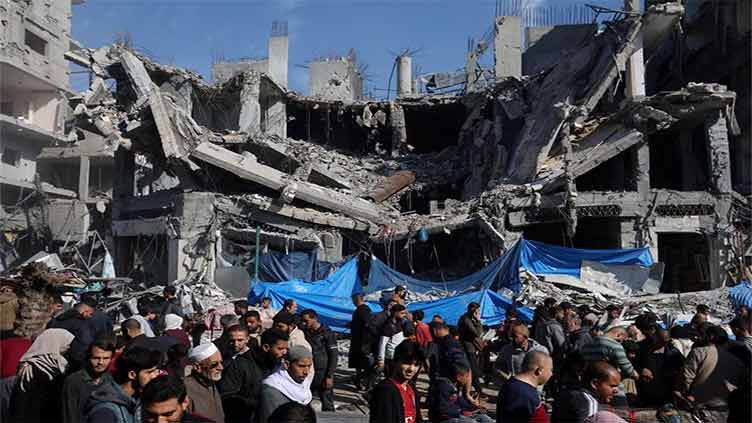How Qatar's assertive diplomacy won a break in the Gaza war

World
How Qatar's assertive diplomacy won a break in the Gaza war
DOHA (Reuters) - Last week, as world leaders feted Qatar for brokering a truce between Israel and Hamas, its negotiators secretly doubled down on their mediation efforts, fearful the ceasefire would collapse before it even started.
Working through the night, Qatari officials helped clinch the vital final details of a truce that ultimately lasted for seven days before hostilities resumed on Friday, permitting the release of dozens of hostages held in Gaza in exchange for hundreds of Palestinian prisoners, and the flow of humanitarian aid into the shattered coastal strip. Qatar said on Friday it was working with both sides to repair the deal.
Reuters has pieced together the most detailed account to date of how Qatar's mediators in Doha bridged the divide between Israel and Hamas on Nov. 22. It offers a glimpse of Qatar's muscular approach in talks between what one official involved in the negotiations called "two parties that have zero level of confidence in each other."
When the original truce agreement was unveiled last week, there were real fears it would never get off the ground, one of Qatar's lead negotiators, career diplomat Abdullah Al Sulaiti, said.
"I thought we were going to lose it and that the agreement wouldn't fly," he said in an interview. The deal covering the truce and accompanying prisoner and hostage exchanges had been loosely worded.
The tiny Gulf state's negotiators knew Israel and Hamas had yet to agree on when, or how, the ceasefire and the swap would begin, according to sources in Qatar, the Palestinian Territories and Egypt familiar with the high-stakes talks.
It was necessary to clarify all the points in the agreement and make sure they meant the same thing to Israel and Hamas, a source briefed on the negotiations said.
For example, the Israeli side had pledged to "park" tanks it was using inside the Gaza strip, but nobody had agreed on what that meant on the ground, said the source, who asked not to be named because of the sensitive nature of the talks.
To remain focused, Qatari Prime Minister Sheikh Mohammed bin Abdulrahman Al Thani cleared his agenda, cancelling planned trips to Moscow and London, the source briefed on the negotiations said.
Inside one of his Doha offices on the afternoon of Wednesday, Nov. 22, Sheikh Mohammed kicked off a new round of negotiations just hours after the truce had been unveiled, the source said.
In the prime minister's main meeting were the Mossad chief, David Barnea, who had flown in from Israel for at least the third time since the beginning of the war, and a delegation of Egyptian intelligence officers. The Qataris used a separate room to call Hamas delegates who had remained in their villa office across town, the source said.
Instead of simply passing on messages from one side to the other, the Qataris' approach to mediation was to be proactive and throw their weight into negotiations, according to a U.S. official familiar with the matter and Egyptian security sources.


